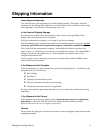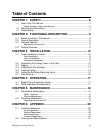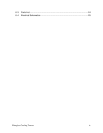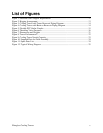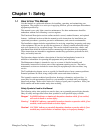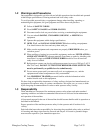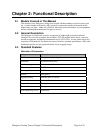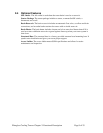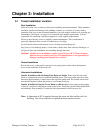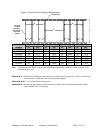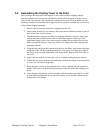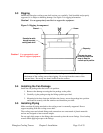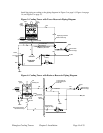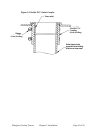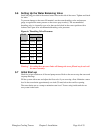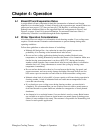
Fiberglass Cooling Towers Chapter 3: Installation Page 10 of 25
Chapter 3: Installation
3-1 Tower Installation Location
Roof Installation
Select a location over or nearest to the heaviest building structural members. These members
should be outside load-bearing walls, building columns, or roof joists. You may need to
spread the load over several structural members to provide support without over-stressing any
one member. See Figure 1 on page 11 for structural steel support requirements. You are
responsible for contacting a structural engineer to verify support requirements.
Choose a site with easy access to simplify routine maintenance. This consideration is
especially important when a tower is located near a roof edge.
Avoid locations where wind currents can re-circulate tower discharge air.
Stay clear of roof discharge points. Avoid stacks, exhaust fans, dust collector discharges, or
any process that can contaminate air circulating through the tower.
Caution! Multiple tower installations require at least five feet (60”/ 152cm) clearance
between towers to reduce freeze-ups. The manufacturer is not responsible for
damages resulting from improper site selection.
Ground Installation
Elevate the tower so that positive pressure is on pump suction and to allow maintenance
access to the underside of the tower cell.
Alternative Installations
Outside Installation with the Pump Tank Reservoir Inside. Water exits the tower and
drains to a pump tank reservoir inside the building below. The tower outlet must be at least
three feet (approximately 1 meter) above the top of the pump tank. The outside tower basin
must drain completely when shut down to avoid winter freeze up.
Outside Installation Using the Tower Basin as a Reservoir. Process pump suction piping
is directly connected to the bottom outlet on the tower. Install the optional outlet basket filter
and automatic float assembly. Contact the Sales department for this accessory kit.
Note: A dimension of 60”is required between the tower air inlet and the wall of a
building. See above caution for required distance between towers.



